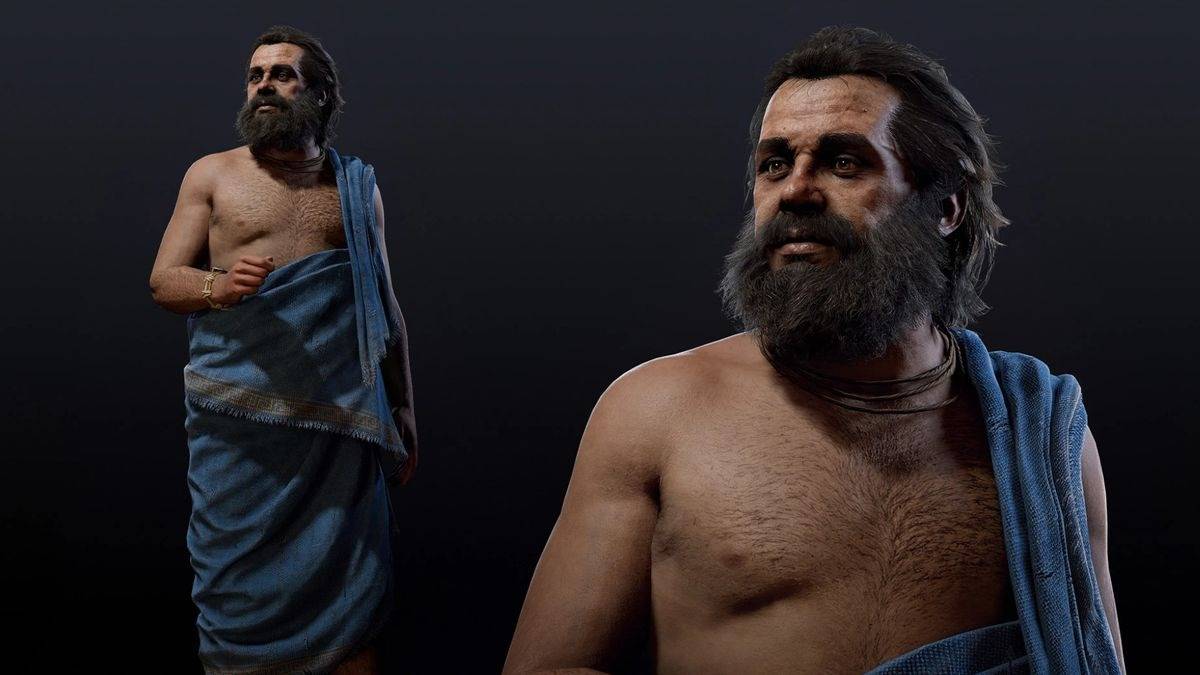AI, Open Worlds, and the Socratic Method: Ubisoft’s Bold and Baffling Vision
Popular Now
 Fall Guys
Fall Guys
 God of War Ragnarök
God of War Ragnarök
 The Legend of Zelda
The Legend of Zelda
 Stumble Guys
Stumble Guys
 Candy Crush Saga
Candy Crush Saga
 League of Legends
League of Legends
 Free Fire
Free Fire
 R.E.P.O
R.E.P.O
 Roblox
Roblox
 CarX Street
CarX Street 
In the ever-evolving conversation about the role of artificial intelligence in video games, Ubisoft has consistently been a loud and controversial voice. The company’s CEO, Yves Guillemot, has championed generative AI as the key to a new era of gaming, a future where open-world games are no longer a series of “pre-scripted things” but a “your world.” During a recent conference in Saudi Arabia, Guillemot doubled down on this vision, using a character from Assassin’s Creed Odyssey as a prime example: an AI Socrates that would, in his words, “definitely give you a historically accurate philosophy lesson.”
 “Your World,” Fewer Scripts
“Your World,” Fewer Scripts
Guillemot’s core argument is that AI will make game worlds more intelligent and reactive to player behavior. While open-world games have given players choices in the past, he says, the next step is to ensure that a player’s actions have a tangible impact on the world, and that the world will react accordingly. The idea of a game world that dynamically changes and adapts to the player’s choices is a compelling one, a promise of a truly personal and unique experience that goes beyond the traditional, railroaded narratives of modern gaming.
However, the CEO’s comments have been met with a mix of excitement and skepticism. Many critics of the publisher have pointed out that the company’s recent history is filled with anti-consumer practices, from the “code in a box” fiasco to a relentless push for live service games and a subscription-based model. For many, the promise of “your world” sounds more like a buzzword-filled excuse to cut costs and automate the creative process.
- Generative AI in the Studio: Ubisoft has been a public advocate for generative AI for years. The company has its own in-house AI tool called “Ghostwriter” that is used to create “barks”—the small, contextual lines of dialogue spoken by NPCs. This tool is designed to save time and allow human writers to focus on more important narrative elements.
- The “Code in a Box” Problem: The company’s recent physical release of The Elder Scrolls IV: Oblivion Remastered was widely criticized for being a “code in a box” rather than a physical disc. This is seen by many as a step towards a digital-only future, where players no longer “own” their games, and it directly contradicts the idea of giving players a truly personal and meaningful experience.
- The Far Cry Shift: The company has also announced that future Far Cry games will be “more multiplayer-focused,” a move that many fear will dilute the franchise’s single-player identity in favor of a live-service model, a trend that has been largely unsuccessful for other publishers.
 The AI Socrates: A Historically Accurate Lesson?
The AI Socrates: A Historically Accurate Lesson?
The most intriguing and bizarre part of Guillemot’s vision is the idea of an AI Socrates. He believes that by feeding the AI all the available data about Socrates’s words and deeds, players will be able to have a conversation with a person who is “actually very close to what that person was.” The goal, he says, is to make players feel like they are “learning” without being “taught.”
While this concept is fascinating, it is also deeply flawed. The core of the Socratic method, as depicted in the works of Plato and Xenophon, is a conversation that is designed to break down a person’s beliefs and lead them to a state of “aporia”—a state of confusion and a realization of their own ignorance. The process is not about being “fed data,” it is about a dialogue, a back-and-forth that forces a person to question their own assumptions. An AI, no matter how advanced, will not be able to replicate the human element of that conversation, and the idea of being “given a lesson” from a pre-programmed machine feels like a contradiction to the very philosophy it’s trying to teach.
Ultimately, Ubisoft’s vision is a bold one. The idea of an open world that truly reacts to the player is the holy grail of modern gaming. However, the company’s past actions and the inherent limitations of generative AI have many wondering if the AI revolution in gaming will be about giving players a truly personal experience or simply a cheaper, more automated one. The high CPC keywords for these discussions, such as “Ubisoft AI games,” “generative AI in gaming,” “Assassin’s Creed Odyssey AI,” and “open-world game design,” all point to a passionate and ongoing conversation about the future of a genre that many fear is losing its soul.








 “Your World,” Fewer Scripts
“Your World,” Fewer Scripts The AI Socrates: A Historically Accurate Lesson?
The AI Socrates: A Historically Accurate Lesson?